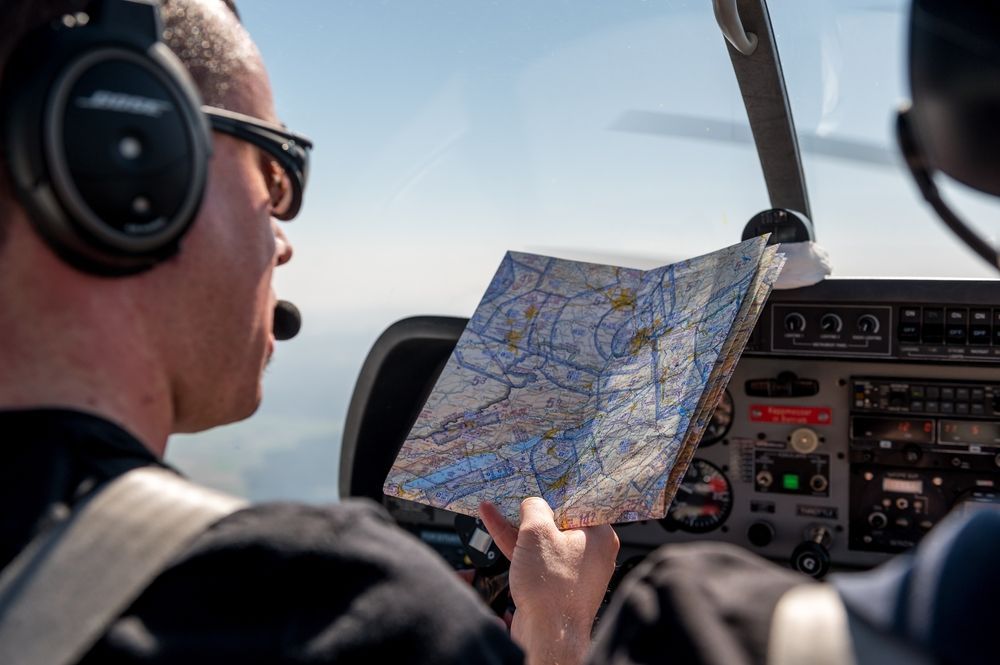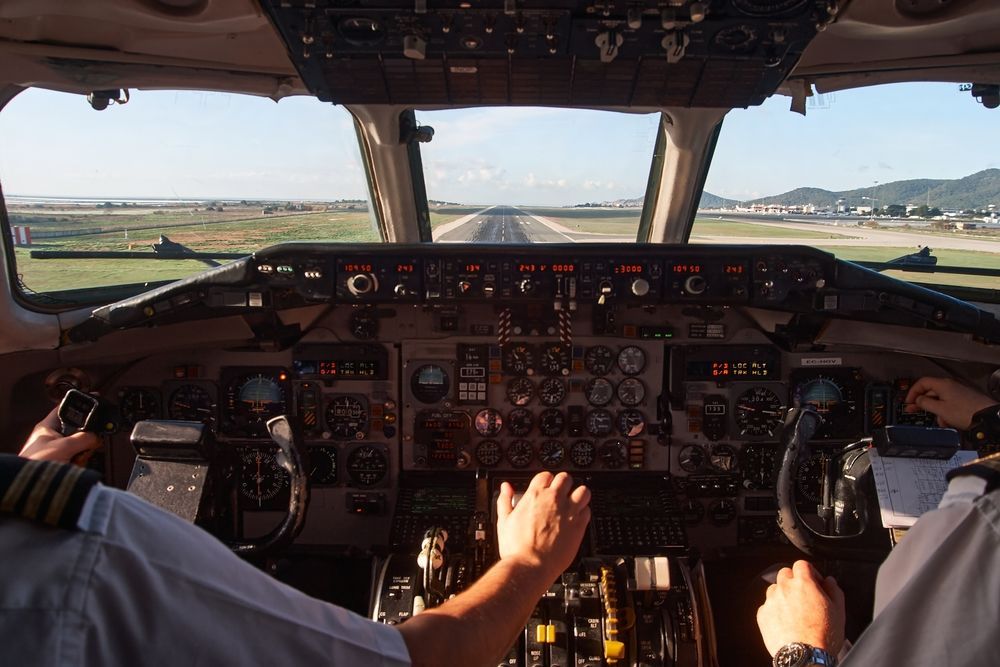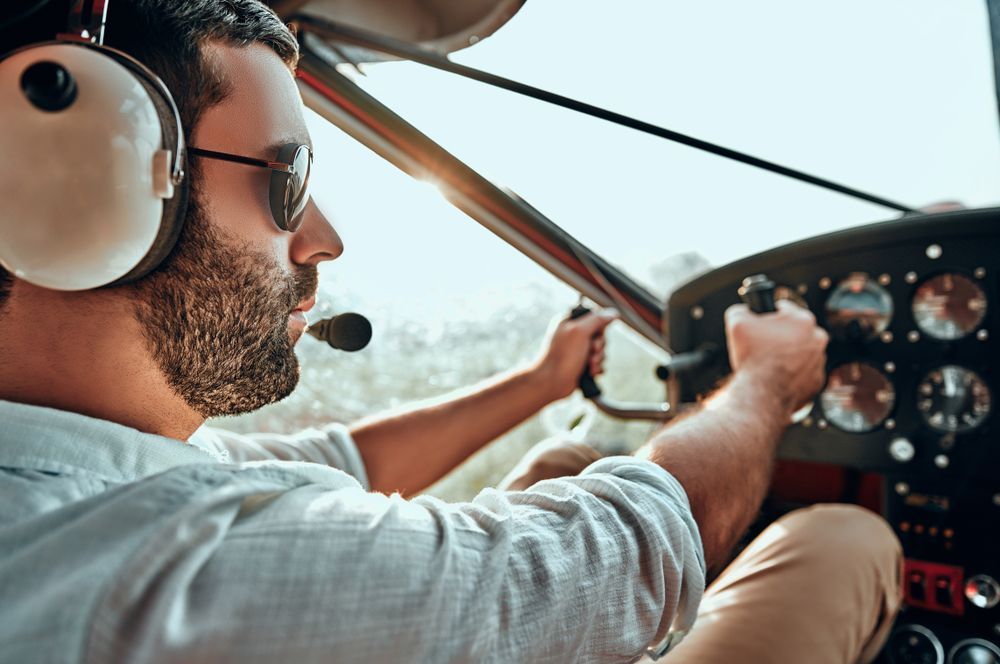How Student Pilots Can Overcome Their Fear of Flying
Share this article:
Written by: J.A. Flight Training
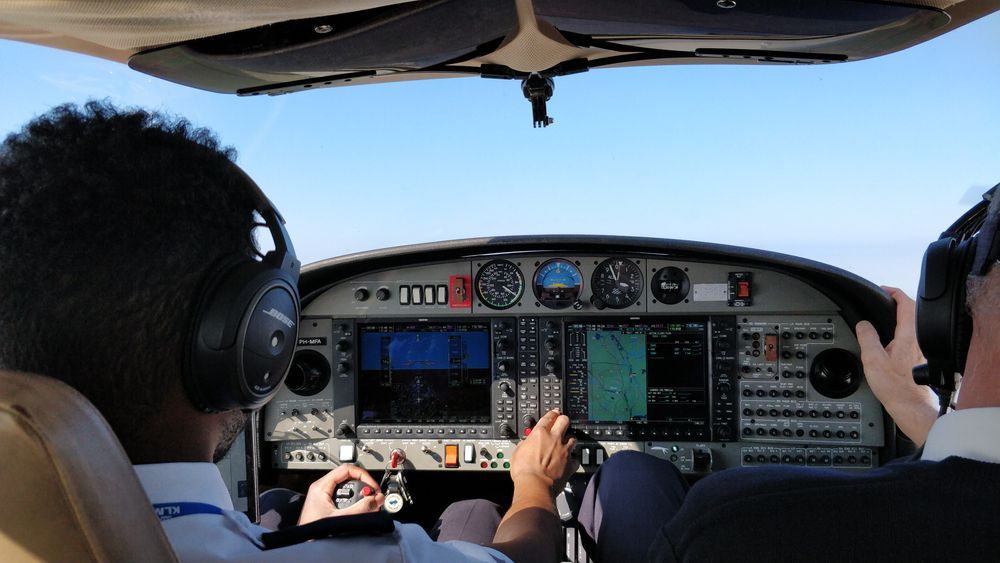
“Fear of flying” is a phrase most commonly associated with boarding a passenger plane, at least in the mind of the public. Yet this fear frequently crops up among flight school initiates. Indeed, student pilot fear of flying is more common than not … yet we don’t talk about it nearly enough.
Whether you’re hoping to join a career airline pilot program, want to fly for fun, or even hope to become an instructor, it’s normal to feel some trepidation. The question is not should you feel fear, but what to do when you feel it.
Understanding Flight Anxiety as a Student Pilot
In flight school, there’s no lack of triggers for student pilots’ fear of flying. From written tests to solo flights, and bad weather to nighttime rides, learning to be a pilot offers plenty of opportunity for stress.
This anxiety is normal because you’re learning to do something new. Not only that, but you’re learning to do it in a foreign and potentially dangerous environment. You should feel some anxiety when operating a large machine for the first few times.
Ways for Student Pilots to Overcome Fear of Flying
That doesn’t mean you must live with student pilots’ fear of flying forever. You simply have to manage it, which you’ll get better at over time. Here are a few strategies.
Study Aviation to Build Knowledge & Confidence
First and foremost, you can calm your student pilots' fear of flying while studying. Knowledge is power, and having a firm foundation of how airplanes work will help you build confidence.
Take ground school seriously. Learn everything you can about flying: how it works, what parts control which movements, what can go wrong, and how to handle the situation when it does. You’ll feel more in control with each lesson you ingest.
Enroll in a Flight Training Program
While there are any number of ways to learn the art of handling aircraft (e.g. private lessons), flight school is the best way to overcome the natural student pilot fear of flying. Why?
Not only do schools represent a collective wealth of knowledge that goes far beyond a single instructor, but they’ve seen it all. A
good flight school knows exactly how to counsel nervous students. They can recommend reading, stress reduction protocols, and extra exercises.
Use Flight Simulators to Get Comfortable Flying
Flight simulators are a great way to manage student pilot fear of flying. They offer a totally safe environment that feels real enough without any actual threat of danger. You can practice in a no-stakes environment, learning all the controls and how they respond, without actual stress triggers.
Time in a flight simulator might not count toward your hours, but if you tend to suffer from nerves, this is a great way to get more practice in.
Fly with an Experienced Instructor for Guidance
Sure, it’s fun to go up with Grandpa Joe on his weekend flights over the countryside. However, when it’s time to learn actual pilot skills, a congenial friend or family member isn’t enough. No matter how friendly and patient they are, if they don’t have actual instructor training, they may not know how to handle student pilots' fear of flying.
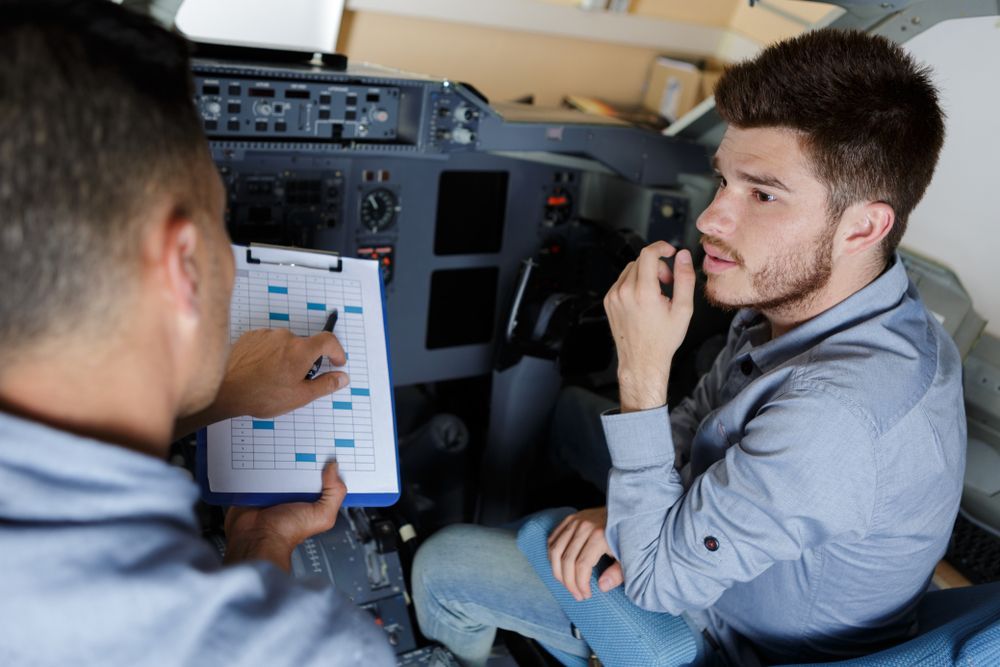
Instead, work with an experienced instructor. Their knowledge of how to best educate people on flying aircraft, combined with their familiarity with student pilot nerves, makes them the best candidates for teaching you this new skill.
It is, of course, possible to find dedicated and knowledgeable instructors on your own, outside a flight school. On the other hand, only flight schools offer you a wide range of experts from which to choose, so you can forge relationships that work for you and your learning style.
Adopt a Pilot’s Mindset to Build Confidence
Treat student pilot fear of flying as a valuable lesson to be learned, and adopt a pilot’s mindset when dealing with it. Pilots routinely deal with time pressures, stress, and other people’s opinions all at once, and must figure out how to deal with them rationally and safely. Do the same with your anxiety, feeling it when it arises and using it as an opportunity to rationalize, prioritize, and act. That’s what pilots do.
Practice Deep Breathing & Mental Techniques
Studies show that deep breathing can help reduce stress and calm the fight-or-flight response. In the case of student pilots’ fear of flying, of course, we want there to be some flight going on (otherwise you can’t stay in the air!), but not the frightened-prey-animal kind.
By practicing deep breathing and other stress-reduction techniques — such as meditation, spending time in nature, or practicing mindfulness — you can create a calmer internal environment. That will help when you fly.
It's Okay to Postpone a Flight Lesson
Becoming a pilot is not a straight line from A to B to C. You will not get everything right the first time. There will be setbacks. It’s important to understand this and give yourself the space you need.
That’s not to say that you should give in to a normal student pilot’s fear of flying and quit. What we
are saying is you don’t need to push yourself. If you’re feeling unwell, the weather is not to your liking, or the timing doesn’t feel right, it’s okay to postpone a lesson until you feel more confident. Learning to listen to yourself is a critical part of becoming a pilot.
Learn to Fly with Confidence at JA Flight Training
Here at JA Flight, we always take student pilots’ fear of flying seriously. It’s normal, we’ve been there ourselves, and learning to handle nerves effectively is a core component of being a pilot. Because let’s be honest … if you do become a pilot, you will face stressful situations again. That’s the skies for you.
Your best bet is to find a flight school that is calm, compassionate, and competent, the better to prepare you for any type of flying situation. We would love to tell you more about becoming a pilot, so get in touch today!
Connect with Us:
